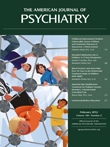Response to Pluess and Belsky Letter
To the Editor: We appreciate the opportunity to respond to Pluess and Belsky's interesting letter. We would like to make three main points. First, in contrast to Pluess and Belsky's contention, we do not view G×E inquiry exclusively from a diathesis-stress (as opposed to plasticity) perspective. Rather, in writing a review, the focus is necessarily on published studies, and the diathesis-stress perspective has been the dominant one in the candidate G×E (cG×E) literature. Second, we believe it unlikely that “one reason cG×E findings often do not replicate is the misconceptualization of candidate genes as risk genes.” Such misconceptualizations would affect novel investigations and direct replication attempts in an identical manner, so that could not be a reason for the numerous failures to replicate cG×E findings. Third, Pluess and Belsky argue that including both risk and protective variables can lead to the correct identification of higher-order (e.g., three-way) interactions. We agree that this is theoretically possible. However, given that the central problems that were raised in our review—low power and likely high false discovery rate—are likely to be exacerbated in tests of higher-order interactions, we would urge caution before accepting novel reports of such findings. As argued in our original article, well-powered, direct replication attempts are crucial for understanding the legitimacy of novel candidate polymorphism findings. In a field with a poor record of subsequent empirical support for novel findings, such direct replications should be viewed as at least as scientifically important as the novel findings themselves.



